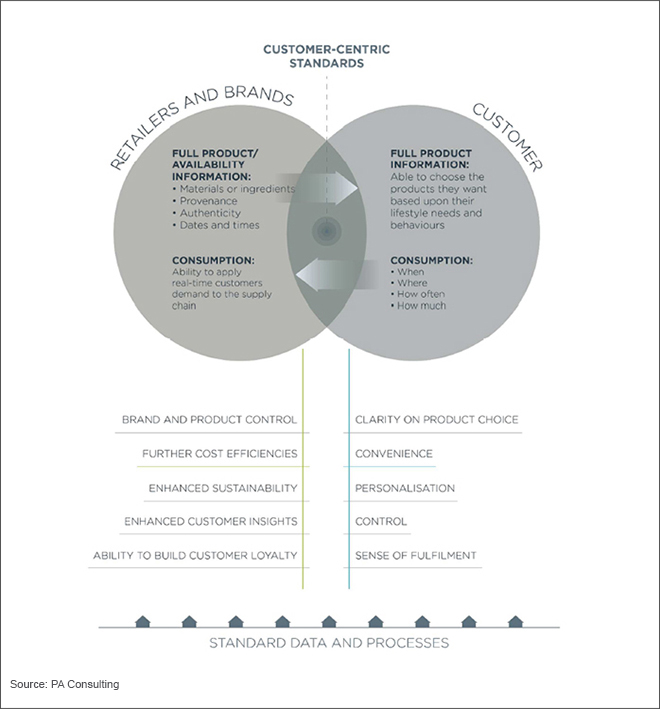September 14, 2018 Opinion piece
In my last blog, I introduced a new report from PA Consulting, Without global standards, can the retail industry give customers what they want?
The report looks at the role of standards in the retail industry, and whether they’re needed in today’s fast moving, digital world.
Just think about some of the advances we’re seeing today. Voice search and screenless ecommerce is fast becoming commonplace. Amazon, Google and Apple seem to be launching new products almost every month, so they can capture this market. And in stores, virtual checkouts could yet become the norm – just look at this video about Amazon Go. And who knows where artificial intelligence will take us, and how it will impact where and how we shop.
All these developments inevitably increase what we, as customers, demand from retailers. Already, we expect the same levels of customer experience, convenience and personalisation from whoever we buy from. The customer service bar is being raised all the time.
Given the speed of this technological development, and the ease by which we all adopt new technology, the question the PA Consulting report sets out could not be more pertinent. Is the future simply too fast-paced for standards to keep up?
To help answer this, the report sets out two very different scenarios for the retail industry. One with global standards and one without.
A world of chaos, limited choice and distrust
Chaos. Limited choice. Distrust. It all sounds dramatic doesn’t it? But the report explains that this could be the future if standards don’t keep up with technology.
Without global standards for collecting, sharing and standardising product information we’ll end up in a digital world with inaccurate product data. This will limit customer choice and even risk greater exposure to counterfeit goods. And in grocery it could mean more food scares.
The distrust would stem from the rise of a handful of dominant global retailers. They would potentially dominate the market, creating barriers to entry for new competitors, products and brands.
A world of customer centricity and trust
At the opposite end of the scale is a world where global standards enable retailers and brands to become totally customer-centric.
I’ve already touched on customer’s expectations in terms of service and authenticity of products. Understanding and delivering against these needs is the key to retaining customer loyalty and trust. And collecting, sharing and standardising product Information will help the retail industry deliver loyalty and trust.
Creating a single standardised industry product database will in turn feed other commercial databases. From there, the world of apps will enable innovation that will deliver new customer experiences.
PA Consulting’s perspective: A future global standards platform
The report shows what this ideal world could look like, with an agreed set of global standards and a product database of all goods entering the market place.
In this scenario, customers can choose what they want with total confidence in the product information they use. And through emerging technology, purchase information can then be fed back in real-time, enabling retailers to reshape their supply chain and become totally customer-demand driven.

But this world demands much greater collaboration from retailers and brands alike. So maybe the question we should really be asking is if retailers and brands will collaborate more to deliver a truly customer-centric world.
What we’re doing to help the retail industry move to this customer-centric world
I’m pleased that at GS1 UK we’re already making good progress towards this world with the Digital DNA industry programme. This is a big step towards building a global product database, built on global industry standards. We’re encouraging and facilitating retailers and brands to collaborate and share their product information on an industry-owned and industry-governed single platform. In 2018 we’ll see this industry solution ready for everyone to use.
But what do you think? Why not read the PA Consulting report
![]() www.linkedin.com/gary-lynch
www.linkedin.com/gary-lynch
![]() @gary_gs1uk
@gary_gs1uk